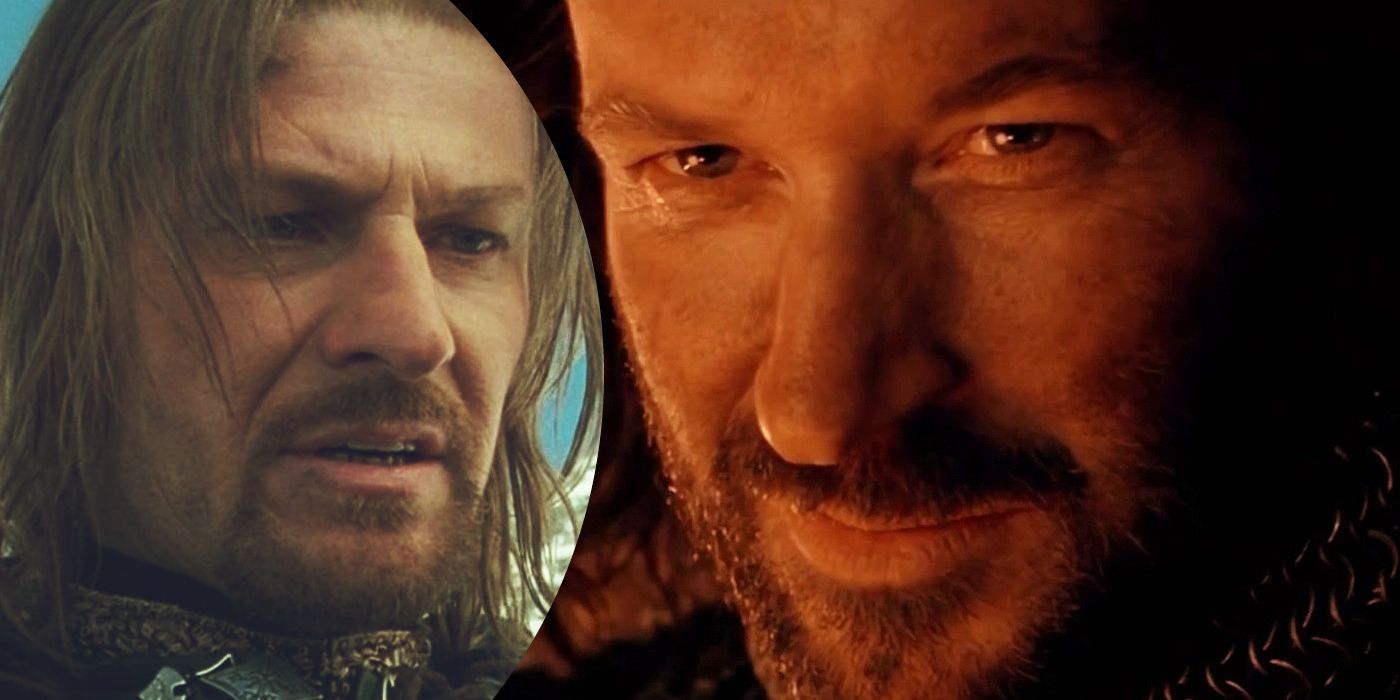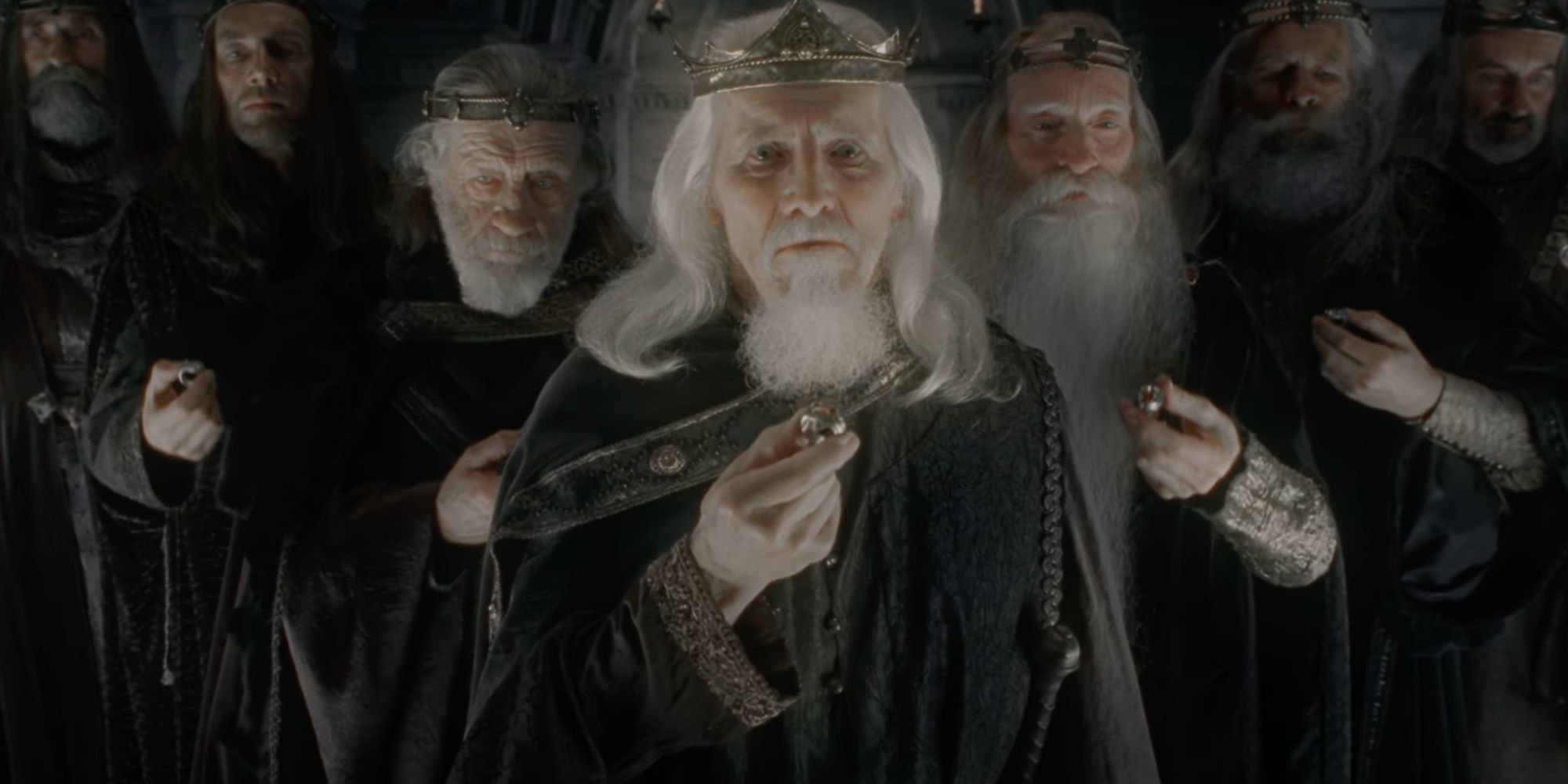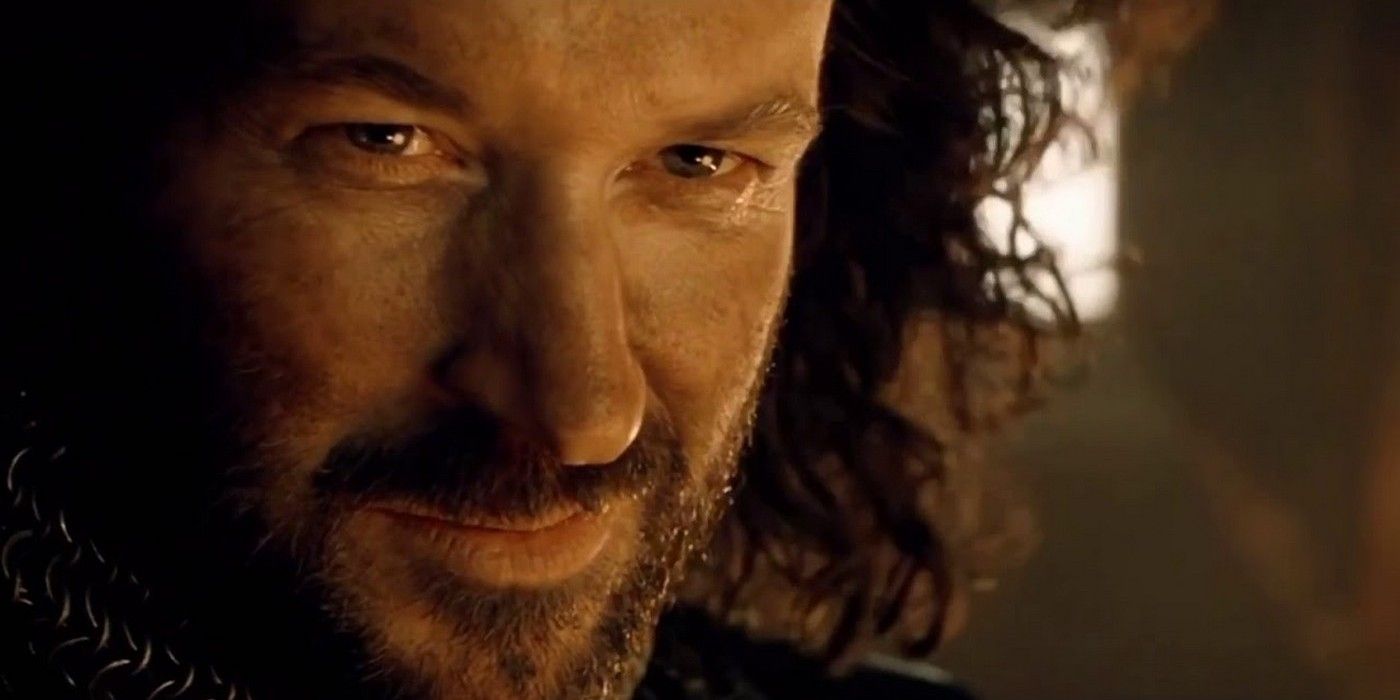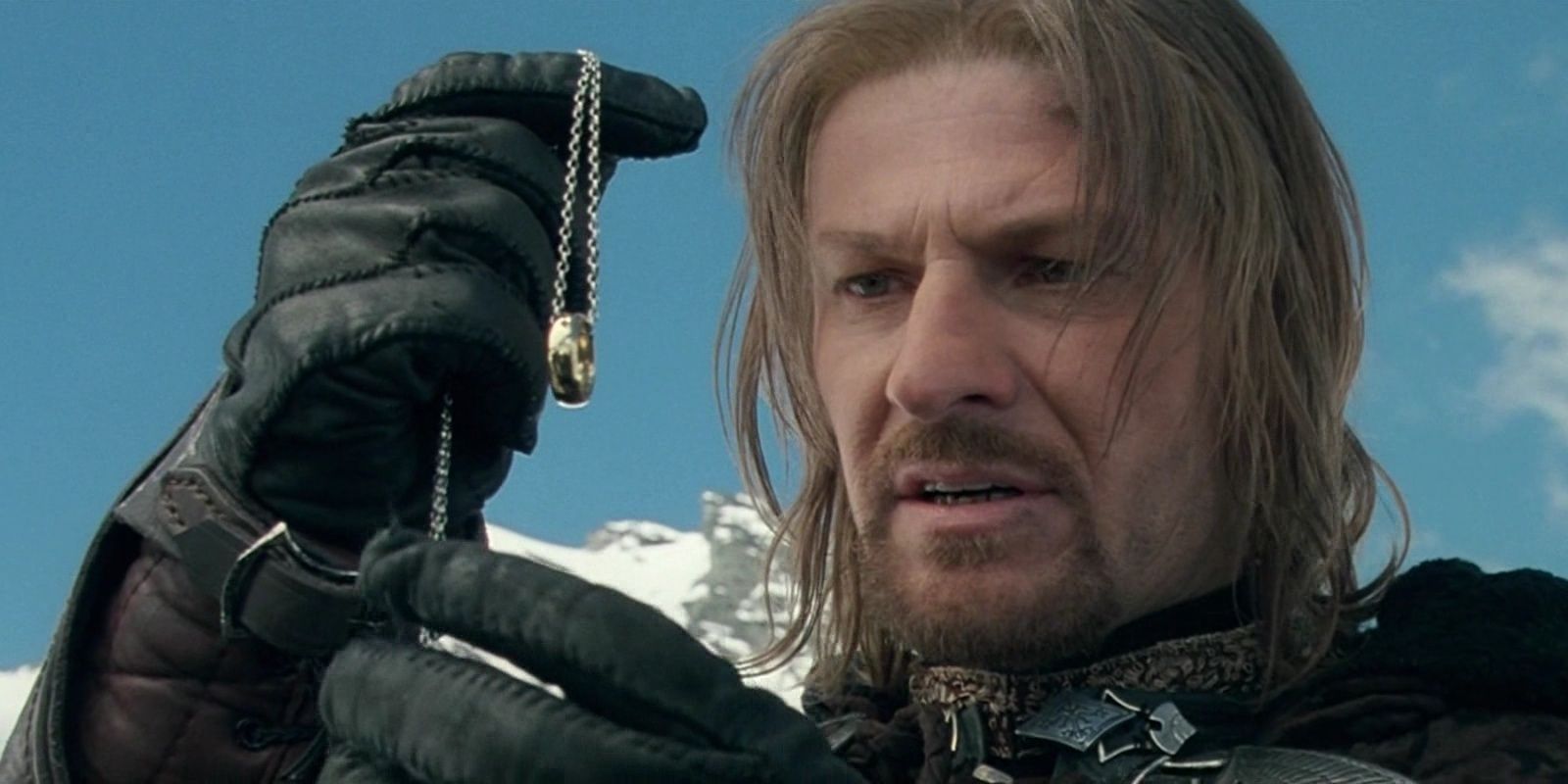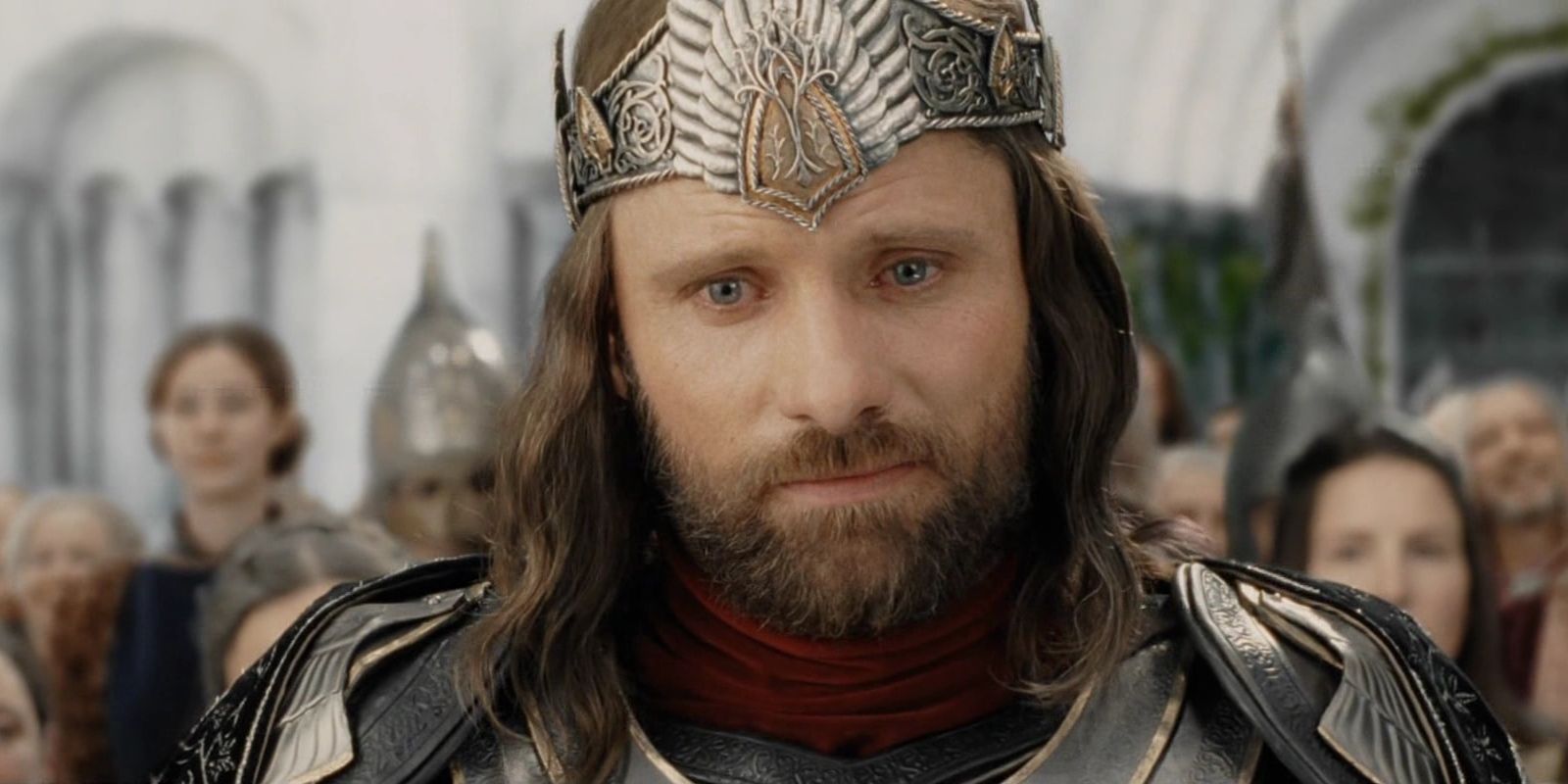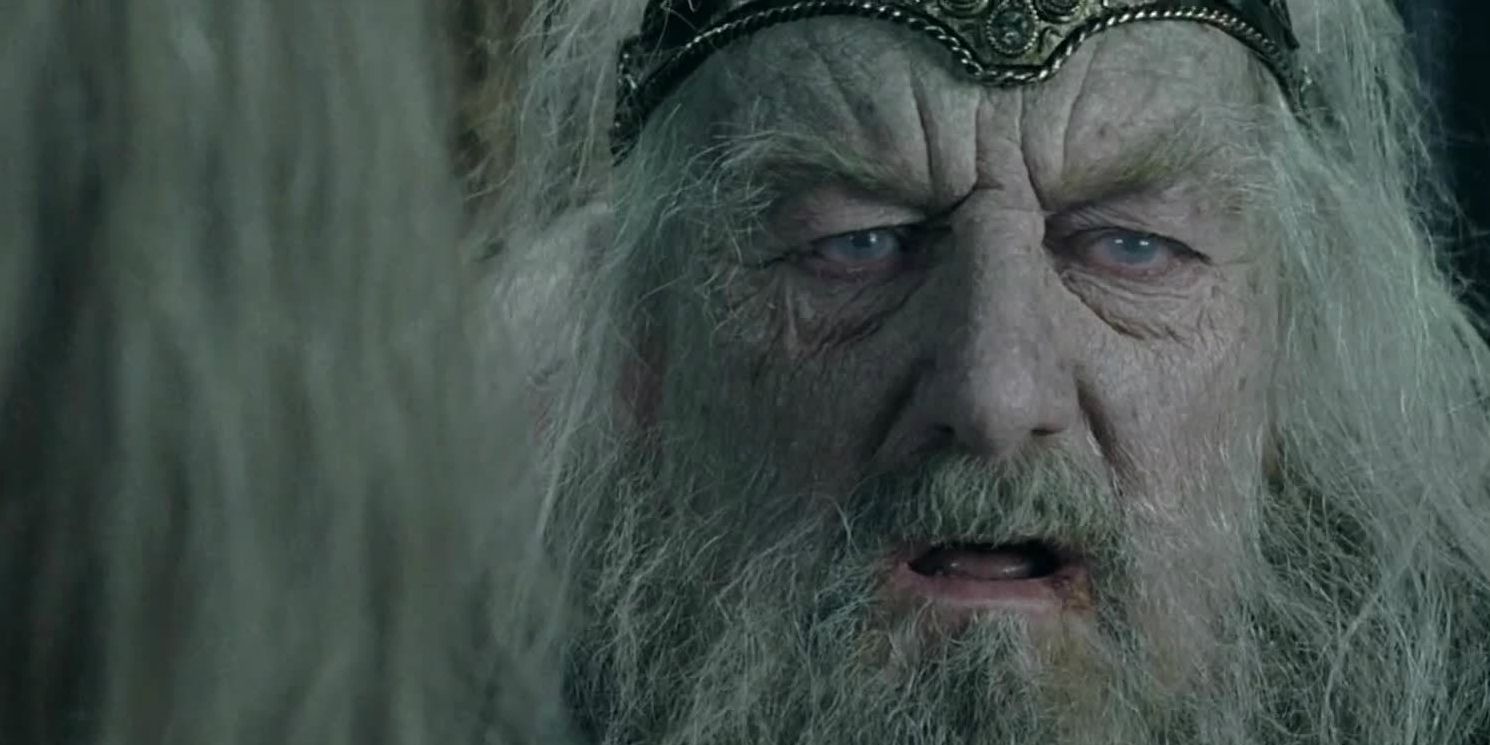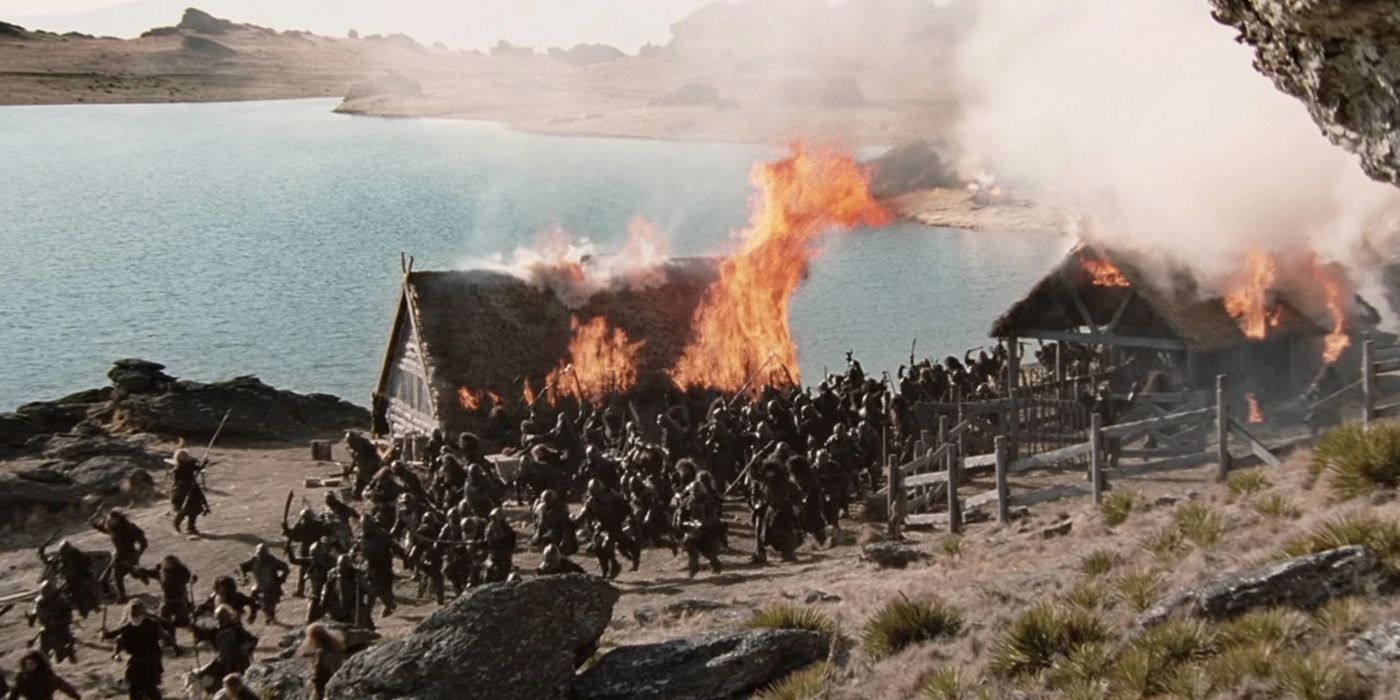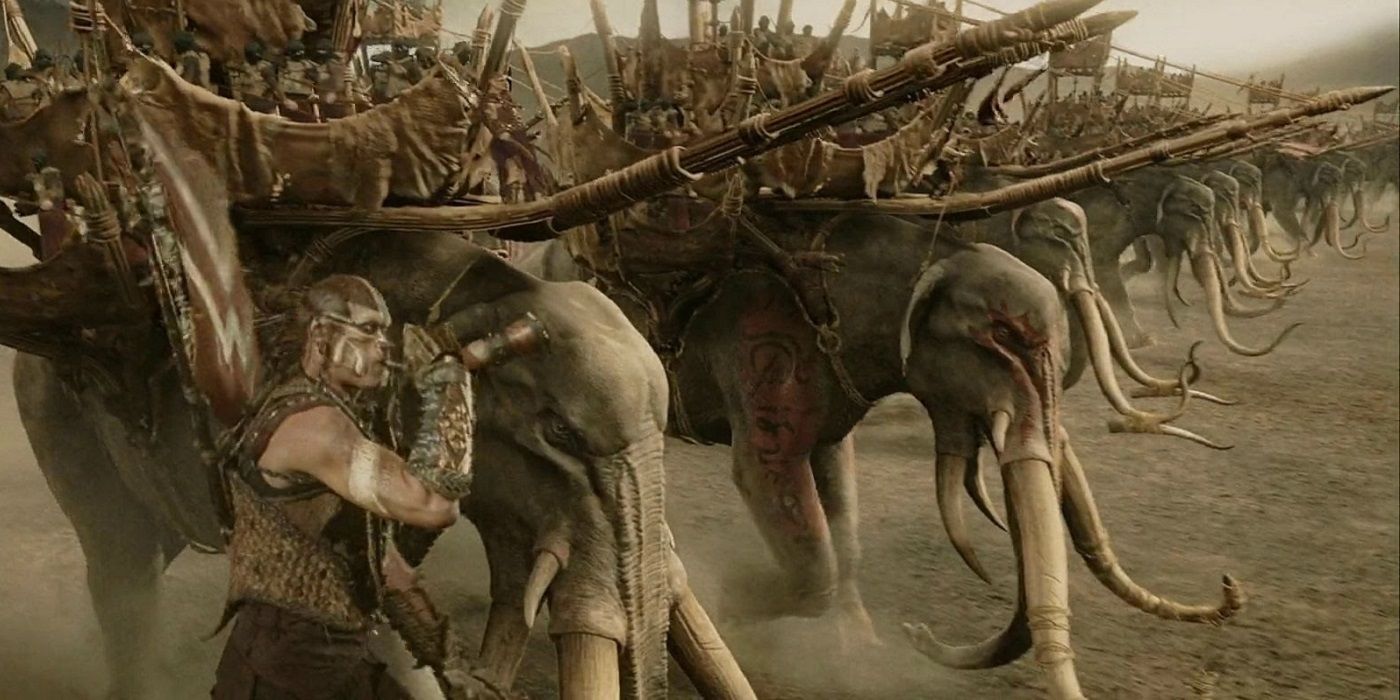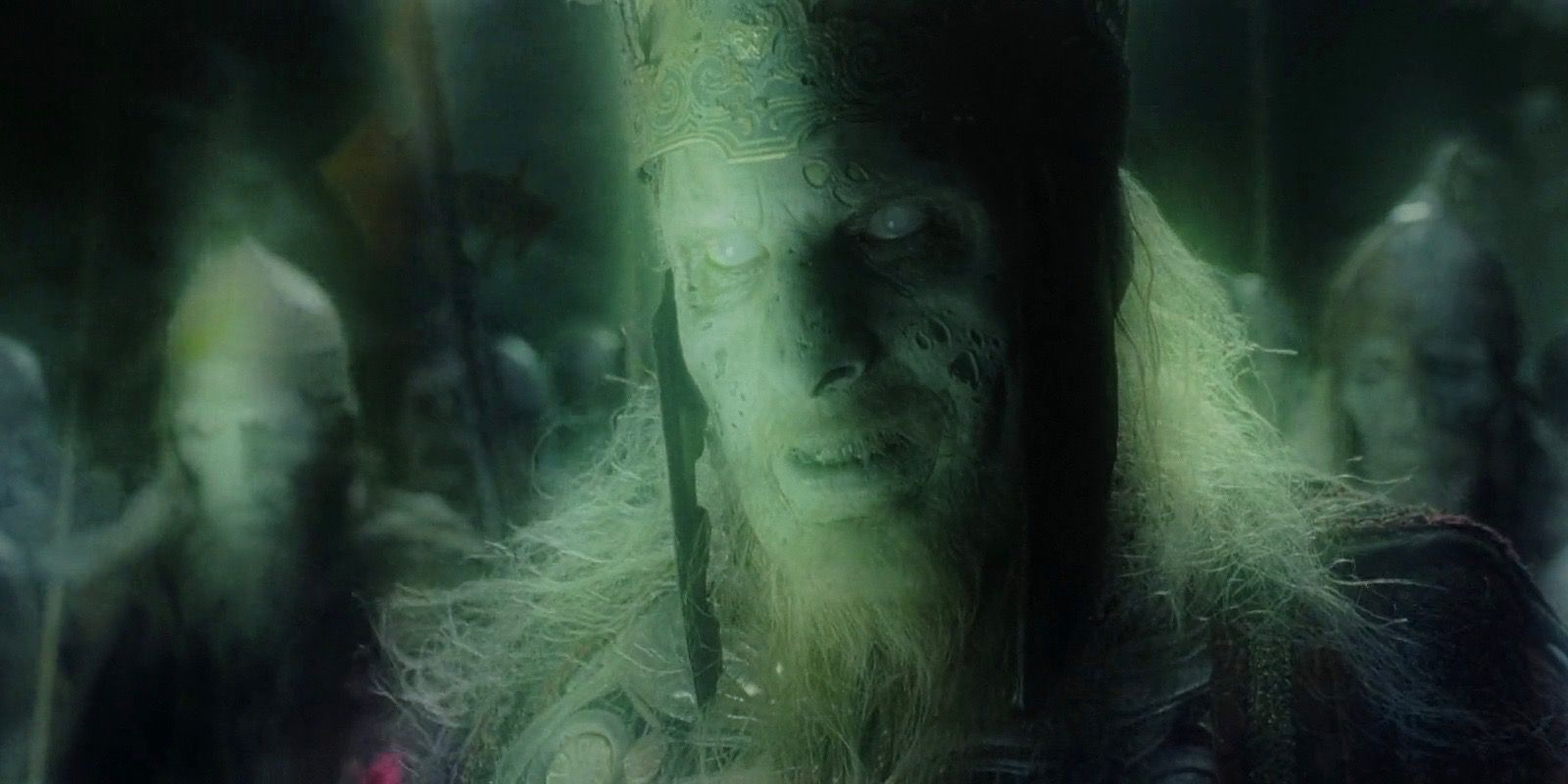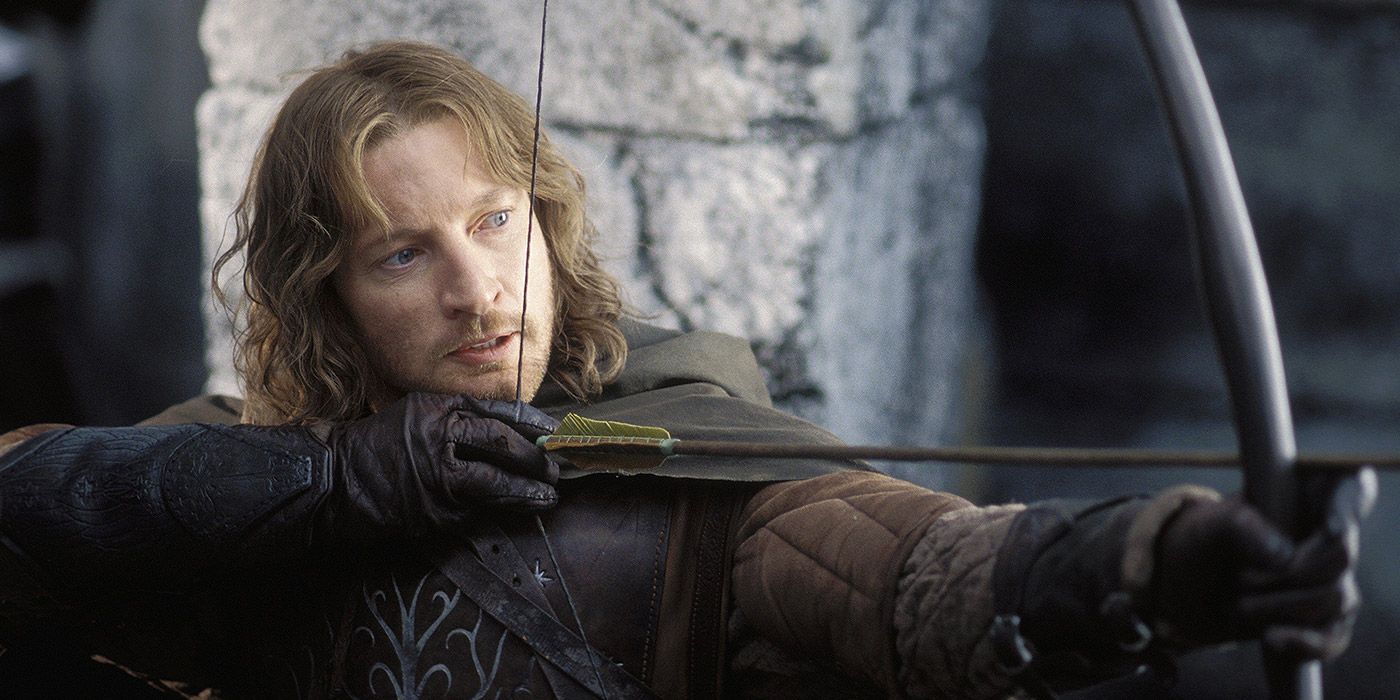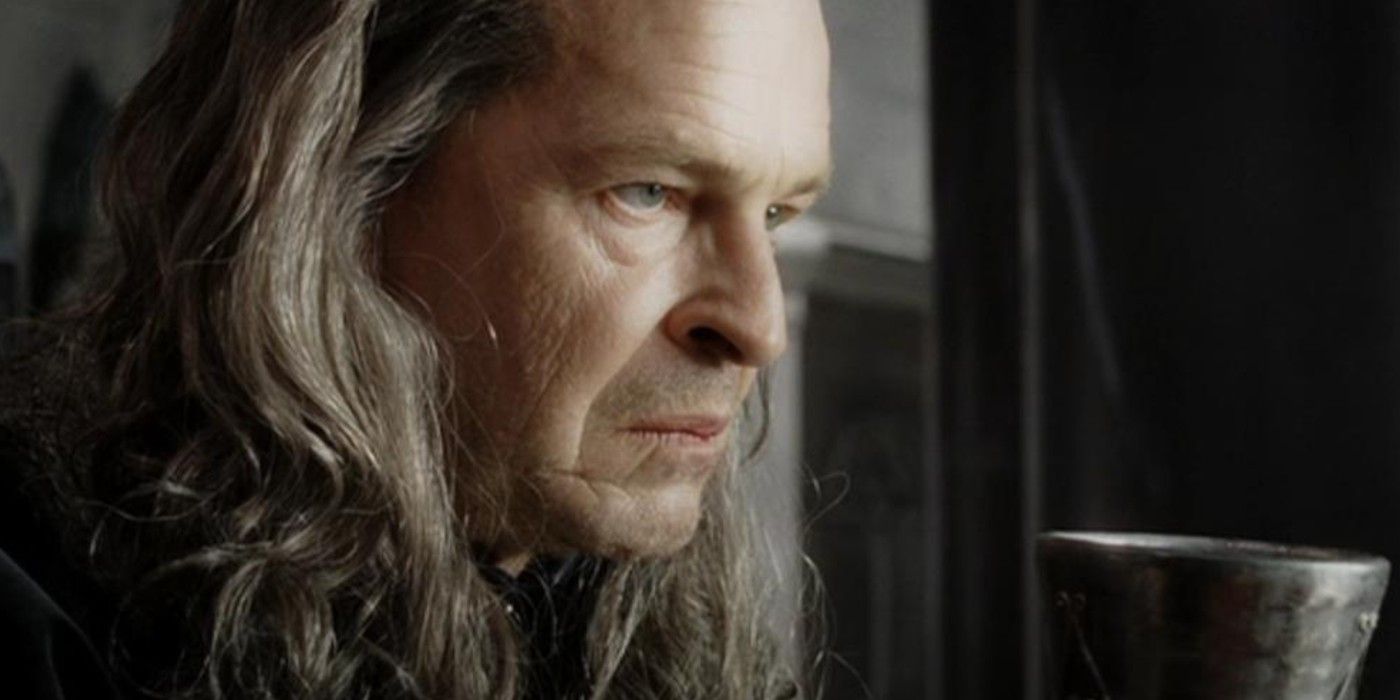The Lord of the Rings franchise weaves an intricate tale of success and failure in the face of unimaginable power - as the upcoming The Rings Of Power (release date unconfirmed) will undoubtedly do as well. While the protagonists of the franchise are Hobbits, the story is truly about humanity. Over the course of the story, the race of Men is constantly put to the test to reveal the true nature of their character and inner strength. The titular Rings are the greatest temptation that Man faces, but it is not the only thing that they come up against in Tolkien's world.
Though some, like Aragorn, rise to the occasion, other instances see the strength of men fail in their tribulations.
Nine Rings For Mortal Men
A major aspect of Frodo and the hobbits' journey is avoiding the treacherous Nazgul, a group of former humans that were corrupted by the rings of power they possessed in their earthly lives. These nine creatures were once kings but were tricked by Sauron into becoming monstrous creatures cursed to hunt the One Ring for the rest of eternity
The failure on the part of the nine kings of Men is perhaps one of the most important defeats in the history of Middle Earth, as it set the tone for thousands of years regarding Men's relationship with power. For millennia, the people of Middle Earth would associate powerful men with the horrifying Nazgul.
Isildur's Fall
Isildur, the distant ancestor of Aragorn, was the first of the race of Men to possess the One Ring to Rule Them All, claiming the prize from Sauron after defeating him. However, instead of destroying the Ring, Isildur vowed to keep its power for himself rather than eliminating its evil once and for all.
It only took moments for Isildur to become corrupted by the power he had sought so hard to destroy, losing all honor on that fateful day, which even Elrond would later refer to as "The day the strength of men failed." In the end, Isildur's greed and lust for power betrayed him and he was killed by those who wanted to steal the Ring from him.
Boromir's Corruption
Boromir, portrayed by Sean Bean, was a member of the Fellowship of the Ring--but also the reason for its disbanding. After spending so long in close proximity to the Ring, Boromir became corrupted by its power, eventually attempting to take it from Frodo and use it himself to restore the might of Gondor.
While Boromir's intentions were mostly righteous, he allowed such proclivities to blind him to the reality that he was not strong enough to wield the power of the Ring. Instead, he had been assigned to protect Frodo at any cost, failing in his mission to do so. Boromir receives some penance in the end, however, as he realizes his mistakes just before his untimely death.
A Throne Unclaimed
Sometime after the death of Isildur, the kingly line at Minas Tirith abandoned the throne, leaving the kingdoms of Men without a king. When the audience is injected into the story, Aragorn is the rightful heir to the throne but does not seem to have the intention of taking it. Instead, the Ranger would have to undergo plenty of tribulations in order to finally prove himself worthy of becoming king.
While Aragorn was certainly worthy of being king, the absence of a ruler on the throne of Gondor allowed for Middle Earth to descend into complacency, making way for the return of Sauron. Had Isildur's heirs still ruled over their once mighty kingdoms, they may have been able to stop such a resurrection from ever beginning in the first place.
Théoden's Deception
When Aragorn, Gimli, Legolas, and Gandalf arrive in Rohan during the events of The Two Towers, they are disappointed to find that the good king Théoden has fallen into decay, both physically and mentally. Under the negative influence of his advisor, Grima Wormtongue, Théoden had allowed his kingdom to slip into chaos.
While Théoden was far from a wicked or unworthy king, the nobleman struggled with complacency in the face of evil. Upon his introduction, he is depicted as weak and uncaring, listening only to Wormtongue's musings. Théoden would have to learn to stand up against wickedness in order to save Middle Earth, eventually dying while doing just that.
The Westfold Falls
While King Théoden remained under the influence of Grima Wormtongue, the orcs of Isengard began to wreak chaos throughout the land, most notably in the Westfold. Knowing that they would face no resistance, Saurman's forces set fire to the village, burning down the Westfold in a matter of hours.
This marked the first loss for Théoden and his kingdom in the battle against Sauron and the forces of evil. The Westfold fell as a result of a failure on the king's part to adequately provide forces to defend them, as well as the complacency of their neighbors in Gondor. This moment, however, did serve to inspire Théoden and his men to enter the battle against Sauron to ensure that no such tragedy occur again under their watch.
The Haradrim Side With Sauron
When the forces of good finally come against the forces of evil in Return of the King, not all men fought on the same side. In fact, while Aragorn led the charge against Sauron's army, he came up against the Haradrim, men from the southwest who had sided with the Dark Lord in the battle for Middle-Earth's soul.
This is a steadfast reminder that, despite Aragorn uniting many kingdoms with his reign, not all were willing to yield to his authority. While little information is given about the Haradrim in the films, their insistence on joining with Sauron shows viewers that, even in the final battle, not all men will see the light.
The Oathbreakers
A major part of Aragorn's journey in Return of the King involves recruiting a ghostly army, known as the Oathbreakers, to help them overthrow Sauron and reclaim Middle Earth. These soldiers were those who had failed to uphold their honor in battle under Aragorn's ancestor, abandoning Isildur in the heat of battle.
While the Oathbreakers would eventually redeem themselves in battle alongside Aragorn, their cowardice in the face of Sauron's wrath could have very well doomed Middle Earth to a dark future had Isildur and the elves not pulled through in the end. For their failure, the Oathbreakers were cursed to roam the lands for millennia until finally being released by Isildur's heir.
Faramir's Fateful Folly
Faramir always had a rivalry with his brother Boromir, brought about by their father's favoritism toward his elder son. As a result, Faramir was willing to do almost anything to earn Denethor's favor. Therefore, when the steward ordered Faramir to raid the enemy in Pelennor Fields, he quickly obliged, despite knowing that this early siege was a losing battle.
This moment marks what might have been had Denethor been allowed to coordinate the defense against Sauron's army: complete and utter disaster. Denethor's strategy represented the worst weaknesses of Men, with his order sending many soldiers to their deaths, as even Faramir barely survived the assault.
The Madness Of Denethor
Denethor may have been the highest authority in Minas Tirith for decades, but he was far from the leader the people needed. When the final battle against Sauron came, the steward of Gondor descended into madness, consumed by the loss of his son Boromir and his perceived loss of Faramir shortly thereafter. In the end, the steward set himself a blaze before hurling himself off of a ledge, still believing his line had ended.
Denethor represents the exact opposite of Aragorn, Théoden, and Faramir, strong men who rose to the occasion when Middle Earth needed them most. Of all men, Denethor was most pitiable, for he had the opportunity to lead his people to greatness, but would have rather dragged them down to despair than fight another day.

